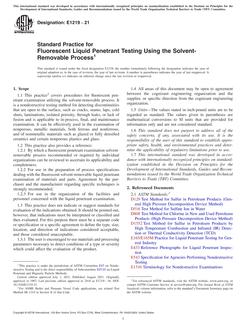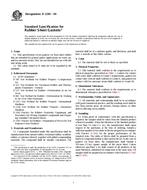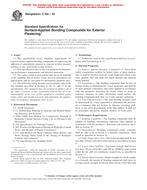1.1 This practice covers the use of reference standard cottons for the standardization of instruments and techniques used to test cotton fibers in various laboratories.
1.2 Standardization may be achieved by application of a correction factor based on the reference standards, or by modification of the technique in use.
Note 1–When reference standards are used to develop correction factors, or to adjust an operator’s technique, no instrument calibration processes are involved. The term “Calibration” is properly used for the application or assignment of permanent scales or marks to an instrument. Adjustments can be made to specific instruments and accessories such as orifices, metallic strips, or cellophane sheets, in order to obtain the prescribed values with a specific instrument. Since an operator’s technique or the interpretation of a method or procedure is inherently variable, it cannot be calibrated, that is, assigned a permanent, definite value. The use of reference standards, however, affords a means for standardizing techniques and checking the reliability of observed results.
1.3 This practice recognizes two types of reference standards: (1) calibration cotton standards (see 6.1) and (2) working cotton standards (see 6.2 ).
1.4 The instructions included in this practice can be used with cotton fibers in any form suitable for testing with the particular instrument to be used.
1.5 The instructions in the practice are applicable to cotton fibers but can also be applied to specific blends of cotton and other fibers, or to other fibers that can be tested with the instruments designed for testing cotton fibers. No information is available, however, to show that test procedures standardized with reference cotton samples are equally reliable with various cotton fiber blends or with other fibers.
Note 2–Standardization procedures covered in this practice are recommended for use with the following: Test Methods D1440, D1445, D1447, and D1448.
1.6 This standard does not purport to address all of the safety concerns, if any, associated with its use. It is the responsibility of the user of this standard to consult and establish appropriate safety and health practices and determine the applicability of regulatory limitations prior to use.
Product Details
- Published:
- 01/01/1999
- Number of Pages:
- 3
- File Size:
- 1 file , 20 KB


